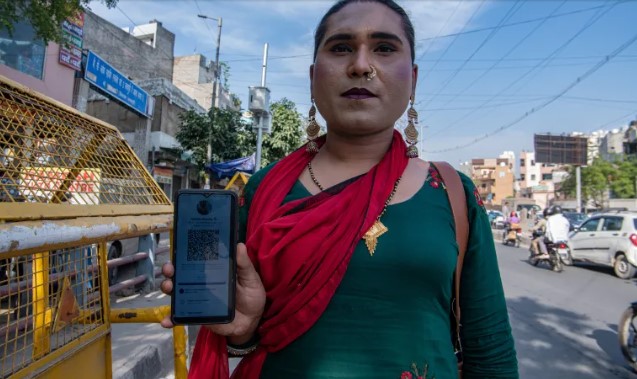
If you’re ever at a traffic stop in India’s capital of Delhi, you might find yourself face-to-face with transgender beggars. But what makes this encounter different from any other beggar you’ll find on the street is their use of smartphones to ask for change.
The rise in digital transactions has made transgender women in India avoid discrimination. These trans women use a QR code on their smartphones when vehicles come to a stop so commuters can directly deposit to their account without having much to say.
One transgender beggar on New Delhi’s streets has shared that she’s faced routine discrimination since she started begging in 2006. Because of few employment opportunities for trans women, they are often forced to beg for their livelihood. With the use of the smartphone, many commuters have reduced their discriminatory commentary towards trans people.
Trans women on the streets of New Delhi have reported that a quarter of their earnings are through digital transactions. By going digital, it has also encouraged commuters to give them money even when they have no change in their pockets.
The Indian government has been pushing for digital transactions over cash since 2016 when the so-called demonetisation in November of that same year wiped out 90% of the cash in circulation. The pandemic was also a precursor to the rise in digital transactions in India.
The use of smartphones by transgender women in India is a testament to the resilience of the human spirit. These women have harnessed technology not only for survival, but the chance at dignity in the crowded streets of New Delhi.



Be the first to comment